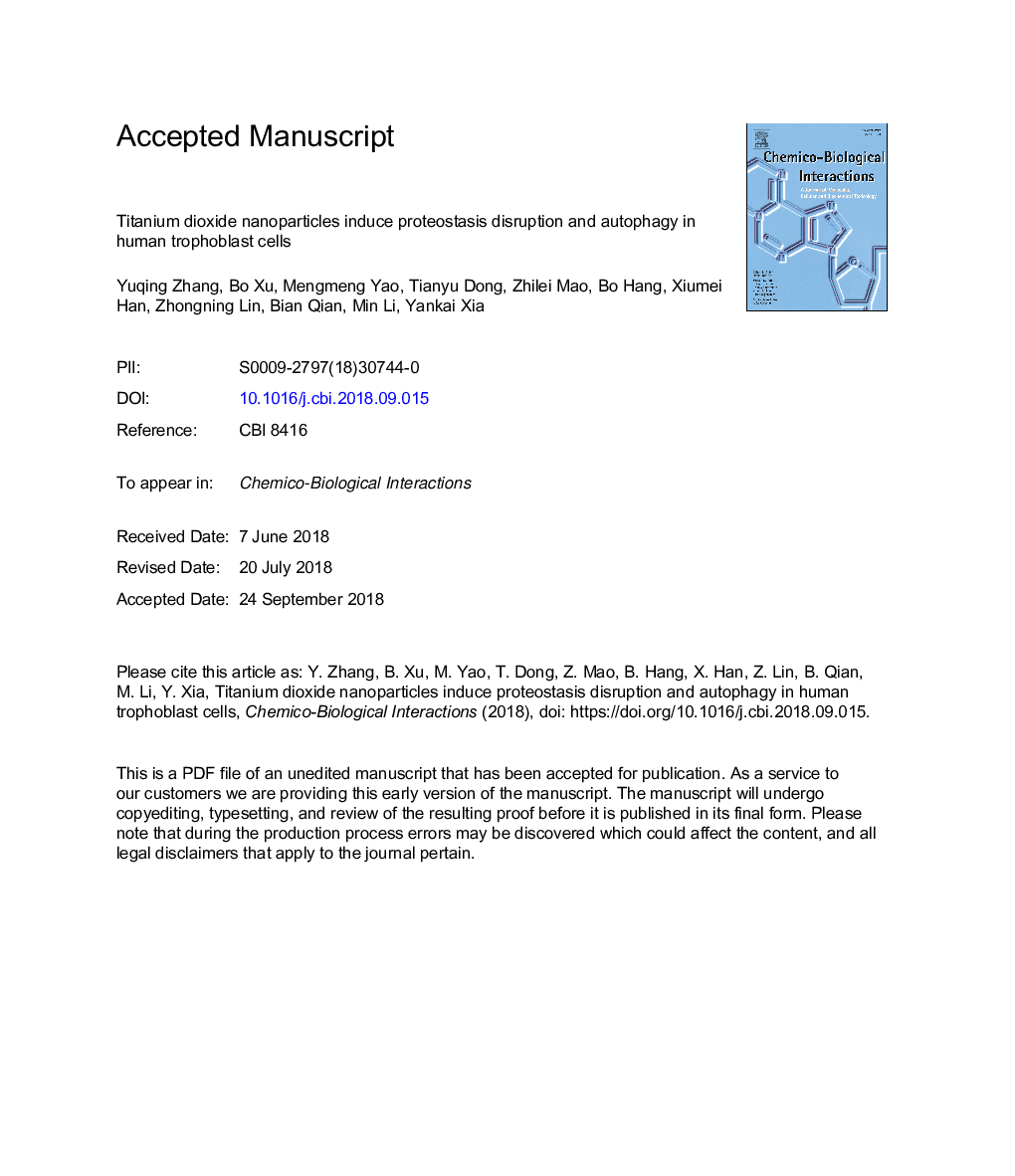| Article ID | Journal | Published Year | Pages | File Type |
|---|---|---|---|---|
| 11025683 | Chemico-Biological Interactions | 2018 | 33 Pages |
Abstract
Titanium dioxide nanoparticles (TiO2 NPs) exist in many nano-products and concerns have been raised about their potential toxicity on human beings. One such issue is their potential effects on placental function, and the studies on this topic are limited and the mechanism remains unclear. Here we employed human trophoblast HTR-8/SVneo cells to investigate the effects of TiO2 NPs on trophoblast. Results showed that TiO2 NPs could enter cells and were mostly distributed in lysosomes, with some in the cytoplasm. TiO2 NPs and protein aggregation were found in both fetal bovine serum (FBS) in culture medium and cytoplasm of HTR-8/SVneo cells. In consistence with that, proteostasis of HTR-8/SVneo cells was significantly disrupted and endoplasmic reticulum (ER) stress related markers including PERK, IRE1-α were increased. After high speed centrifugation, the proteins PERK and IRE1-α were dramatically decreased in the highest TiO2 NPs treatment group, which indicated interactions between TiO2 NPs and these two proteins. Meanwhile, the protein expressions of LC3-II/LC3-I and P62, the autophagy biomarkers, were increased and the autophagy flux was not blocked. Cellular ROS stress increased and mitophagy related genes including PINK and Parkin increased along with the increased co-localization of LC3 and mitochondria. Taken together, these results indicated that TiO2 NPs interacted with intracellular proteins and activated ER stress and mitophagy in HTR-8/SVneo cells, which might do damage to placental function.
Related Topics
Life Sciences
Environmental Science
Health, Toxicology and Mutagenesis
Authors
Yuqing Zhang, Bo Xu, Mengmeng Yao, Tianyu Dong, Zhilei Mao, Bo Hang, Xiumei Han, Zhongning Lin, Qian Bian, Min Li, Yankai Xia,
